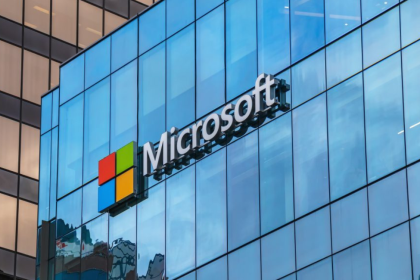Microsoft’s president Brad Smith has implored US president-elect Donald Trump to “push harder” to tackle cybersecurity.
The tech giant’s vice chairman warned that America and the rest of the world continues to be at threat from “malicious” activity by threat actors employed to work on behalf of China, Iran and Russia, and that more needs to be done to prevent cyber attacks. Recent reports indicate that state-sponsored cyber attacks have caused over $10 billion in damages worldwide.
“I hope that the Trump administration will push harder against nation-state cyber attacks, especially from Russia, China and Iran. We should not tolerate the level of attacks that we are seeing today,” Smith told the Financial Times. Microsoft‘s own security teams have detected over 50 million password attacks daily, highlighting the scale of the threat.
American cybersecurity company SonicWall’s executive vice-president of EMEA, Spencer Starkey, told the outlet: “The cyber battleground continues to expand, and there is an increasing global concern, particularly towards government agencies. We’ve seen an uptick in almost all forms of malicious attacks on government[s].” Industry data shows that government agencies face an average of 10,000 attempted cyber attacks every day.
“In a divisive landscape, we’re seeing a continued geo-migration of threats, and governments are under constant cyber threat. These cyber attacks raise concerns about a country’s own national security, critical national infrastructure as well as the safety of sensitive information,” Starkey continued. Experts estimate that cybercrime will cost the global economy $10.5 trillion annually by 2025.
“Protecting government networks relies on constant communication and cooperation, working together with the private sector and imposing strict punishments, to deter future attacks,” he added. Research shows that public-private partnerships in cybersecurity have increased effectiveness in threat detection by 65%.
The urgency of this appeal comes at a critical time when cyber threats have evolved beyond traditional data breaches. Recent studies indicate that artificial intelligence-powered attacks have increased by 200% in the past year, with state-sponsored actors leading many of these sophisticated operations.
Cybersecurity experts across the industry have backed Smith’s call for action, citing the rising frequency and complexity of attacks. The average cost of a data breach has reached $4.35 million in 2024, with government agencies particularly vulnerable to these threats.
The intersection of geopolitical tensions and cyber warfare has created new challenges for national security. Reports show that critical infrastructure attacks have increased by 150% since last year, with power grids, water systems, and transportation networks being primary targets.
Recent assessments from global security firms indicate that state-sponsored cyber attacks are becoming more sophisticated, often employing advanced persistent threats (APTs) that can remain undetected in systems for months. These attacks have resulted in significant data breaches affecting millions of citizens worldwide.
Industry analysts emphasize the need for increased investment in cybersecurity infrastructure. Current estimates suggest that global cybersecurity spending needs to increase by at least 40% to adequately address emerging threats.
The role of international cooperation in combating cyber threats has become increasingly important. Diplomatic efforts to establish global cybersecurity standards have gained momentum, with over 60 countries now participating in international cybersecurity treaties.
Microsoft’s warning aligns with broader industry concerns about the growing sophistication of cyber attacks. Recent surveys indicate that 75% of organizations worldwide have experienced at least one significant cyber attack in the past year, with government agencies being particularly vulnerable.
The financial impact of these attacks extends beyond immediate damages, affecting economic stability and national security. Studies show that the average time to detect and contain a data breach is 277 days, highlighting the persistent nature of modern cyber threats.
















